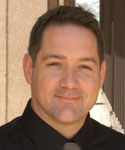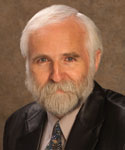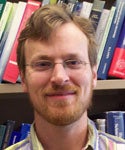| |
|
|
|
|
 Richard A. Settersten Jr., professor of sociology, is co-editor (with Frank F. Furstenberg Jr. and Rubén G. Rumbaut) of On the Frontier of Adulthood: Theory, Research, and Public Policy (University of Chicago Press, 2005). The contributors to this volume examine how social and economic changes over the past half century have complicated the transition from adolescence to adulthood, and ask how public policy initiatives might improve outcomes for young people during this critical period. The book is the first major product of the Research Network on Transitions to Adulthood and Public Policy, funded by the John D. and Catherine T. MacArthur Foundation. Richard A. Settersten Jr., professor of sociology, is co-editor (with Frank F. Furstenberg Jr. and Rubén G. Rumbaut) of On the Frontier of Adulthood: Theory, Research, and Public Policy (University of Chicago Press, 2005). The contributors to this volume examine how social and economic changes over the past half century have complicated the transition from adolescence to adulthood, and ask how public policy initiatives might improve outcomes for young people during this critical period. The book is the first major product of the Research Network on Transitions to Adulthood and Public Policy, funded by the John D. and Catherine T. MacArthur Foundation.
In addition to serving as co-editor, Settersten wrote the volume's concluding chapter, which offers proposals to restructure education and job training programs, expand services for at-risk youth, and foster civic engagement. "The evidence in this book," he writes, "suggests that early adulthood is a critical time to continue investing in those who have had troubled beginnings and make new investments in those who have not."
|
|
 In her new book, Defining Women's Scientific Enterprise: Mt. Holyoke Faculty and the Rise of American Science (University Press of New England, 2005), history professor Miriam Levin examines how four generations of faculty at an exemplary women's college established their own professional identities while training large numbers of students who would go on to obtain medical degrees and doctorates in the sciences and mathematics. Mt. Holyoke was founded as a Protestant seminary, and in her account of the "female science mission" that emerged there between 1837 and 1937, Levin "weaves religion into, rather than out of the story," asking how the scientific enterprise was informed by religious belief as well as by gender conventions, teaching practices, and the evolving "marketplace for scientific knowledge." In her new book, Defining Women's Scientific Enterprise: Mt. Holyoke Faculty and the Rise of American Science (University Press of New England, 2005), history professor Miriam Levin examines how four generations of faculty at an exemplary women's college established their own professional identities while training large numbers of students who would go on to obtain medical degrees and doctorates in the sciences and mathematics. Mt. Holyoke was founded as a Protestant seminary, and in her account of the "female science mission" that emerged there between 1837 and 1937, Levin "weaves religion into, rather than out of the story," asking how the scientific enterprise was informed by religious belief as well as by gender conventions, teaching practices, and the evolving "marketplace for scientific knowledge."
|
|
 Ross Duffin, Fynette H. Kulas Professor of Music, has received the 2005 Thomas Binkley Award from Early Music America. The award recognizes outstanding achievement in both performance and scholarship by the director of a university or college collegium musicum (early music ensemble). Ross Duffin, Fynette H. Kulas Professor of Music, has received the 2005 Thomas Binkley Award from Early Music America. The award recognizes outstanding achievement in both performance and scholarship by the director of a university or college collegium musicum (early music ensemble).
Duffin has served as chair of Case's department of music and has taught early music classes here and at workshops throughout the United States and Canada. For almost two decades, he hosted the National Public Radio program "Micrologus: Exploring the World of Early Music." The author of Shakespeare's Songbook (Norton, 2004), a compilation of 160 songs performed, quoted, or alluded to in Shakespeare's plays, Duffin had previously earned the prestigious Noah Greenberg Award from the American Musicological Society for his contributions as a scholar and performer.
The Thomas Binkley Award is named for the legendary lutenist and educator who founded the Early Music Institute at Indiana University. Duffin, who recalls wearing out his LP copies of Binkley's recordings thirty years ago, said that the award also recognizes the excellence of Case's early music program "as a training ground for future performers and collegium directors."
|
|
 Research on changes in the composition of basaltic magmas as they move from the Earth's upper mantle to its surface has earned James Van Orman, assistant professor of geological sciences, the 2005 F. W. Clarke Award of the Geochemical Society. Research on changes in the composition of basaltic magmas as they move from the Earth's upper mantle to its surface has earned James Van Orman, assistant professor of geological sciences, the 2005 F. W. Clarke Award of the Geochemical Society.
The award recognizes "a young scientist for a single outstanding contribution to geochemistry or cosmochemistry." Van Orman assumes that he is being honored for a series of papers he wrote as a doctoral student at MIT, where he graduated in 2000. He joined the Case faculty in 2002.
Most of Van Orman's research involves a combination of experimental work and numerical modeling. Currently, he is collaborating with several other Case scientists, including Dan Lacks and John Angus from the department of chemical engineering, on geochemical projects. These include an effort to simulate silicate magmas (and thus improve our understanding of volcanic eruptions) and a study of micro-diamonds in petroleum reserves.
|
|